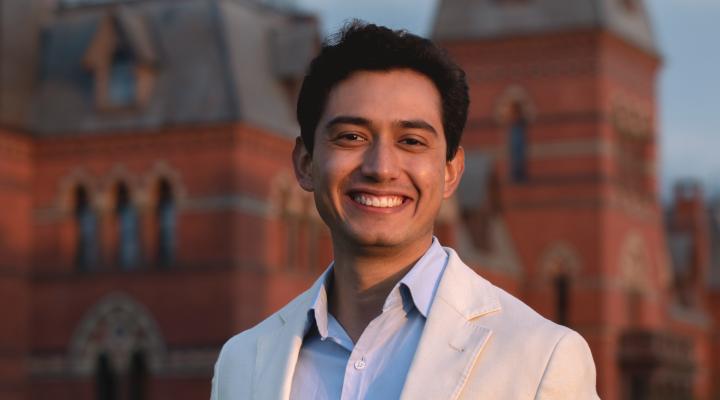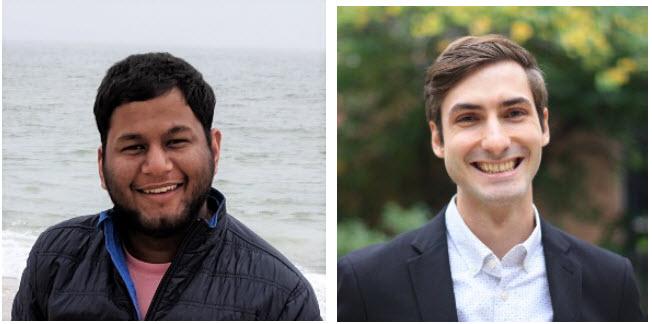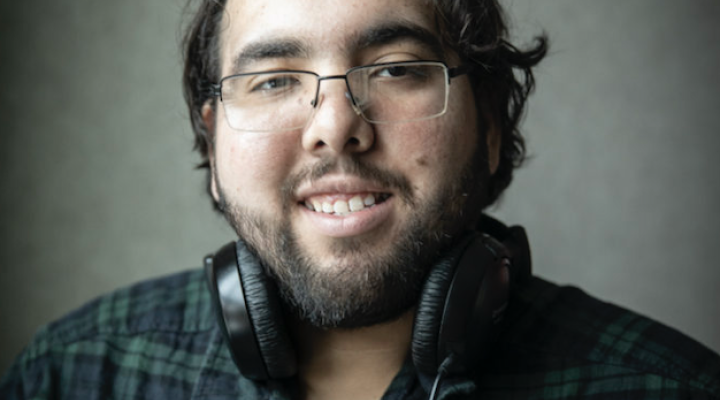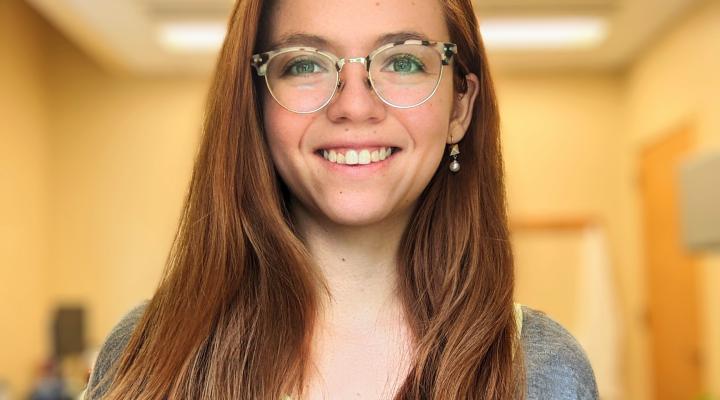Abhishek K. Sharma, Escobedo Group
Into the Unknown: Simulations of Self-Assembly
We all have our ‘comfort zone’ where we feel stable and secure. But staying in the comfort zone could dissuade us from exploring perhaps better versions of ourselves. In this talk I will summarize how getting outside the comfort zone has enriched me as a graduate student and more importantly showed me how to enrich the community.
As a first year, without any background in thermodynamics or simulations, I ventured into simulations with a curiosity about self-assembly. Microscopic colloidal particles can self-assemble into complex meso-scale structures whose characteristics are dictated by individual features of a particles such as size, shape, and specific inter-particle interactions. In this talk, I will discuss the role of particle shape on self-assembly, by examining the kinetics of disorder to order transitions for particles of different shapes. I will share how our Monte Carlo simulations of a thermal systems have revealed that the way such particles are faceted has important consequences upon how and how quickly order nucleates when solely driven by entropic forces. We find new examples of a spherical, faceted nuclei, and scenarios where the pre-critical nuclei interact with each other, leading to an unusual bulk phase transition.
As an international student, I initially saw the department as more of a stopover than a home. I will talk about how I transitioned to a place where I could see participation in department initiatives as an enriching experience–both for myself and the community. I will talk about my work with various initiatives within the department, including Diversity and Inclusion Program, Science Blender podcast, and CBE Women. I could not do this on my own, and I will discuss how various individuals brought me on board to do things I had never done before.
Andrew W. Ruttinger, Clancy Group
Exploring Roles of a Scientist for Climate Action
Globalization and innovation have made our world’s grand challenges more complex, more widespread, and more institutionalized. Climate change is one example that has risen to the forefront of public discourse. Despite public awareness, governments, corporations, and individuals alike have been slow to react to the concerns posed by growing anthropogenic emissions. Nascent technologies, concerns of stalled economic growth, technological lock-in, and scientific misinformation and disinformation are just some of the major barriers that hinder progress. Tackling these challenges, then, requires coordination and ambition from all stakeholders of society at an unprecedented scale. This led me to ask an important question: as a scientist and researcher, what role can I play in these global efforts?
For the Hooey award seminar, I explore this question through the lens of my research and service-and how they relate to my broad objective of helping to address climate change. I demonstrate four roles that I have served in during my PhD: a pioneer, intermediary, ambassador, and community-builder. Foremost for scientists is our role as pioneers, pushing the limits of human knowledge through research and setting the groundwork for decarbonized technologies. Here, I discuss my contributions of fundamental computational research ranging from solar photovoltaic development to lithium extraction and geothermal energy valorization to thermal energy storage. Next is the role of intermediary, translating science into more accessible language in the form of environmental, economic, and social impacts. I demonstrate this through different impact assessments as they pertain to emissions reduction through carbon dioxide capture and utilization. Third is serving as an ambassador of the scientific community and being a purveyor of honest information to the public. I emphasize this by reflecting on my current engagement with the Canadian Science Policy Centre, providing an open forum for knowledge-sharing. Finally, the importance of being a community-builder is often overlooked, but it helps create an environment that allows science and scientists to thrive. I highlight this through my service within ChEGSA and without.
While grand challenges like climate change remain global and include efforts from individuals of all professions, I hope to present my PhD experience to provoke thoughts and discussion around our societal roles and opportunities as scientists and experts.






